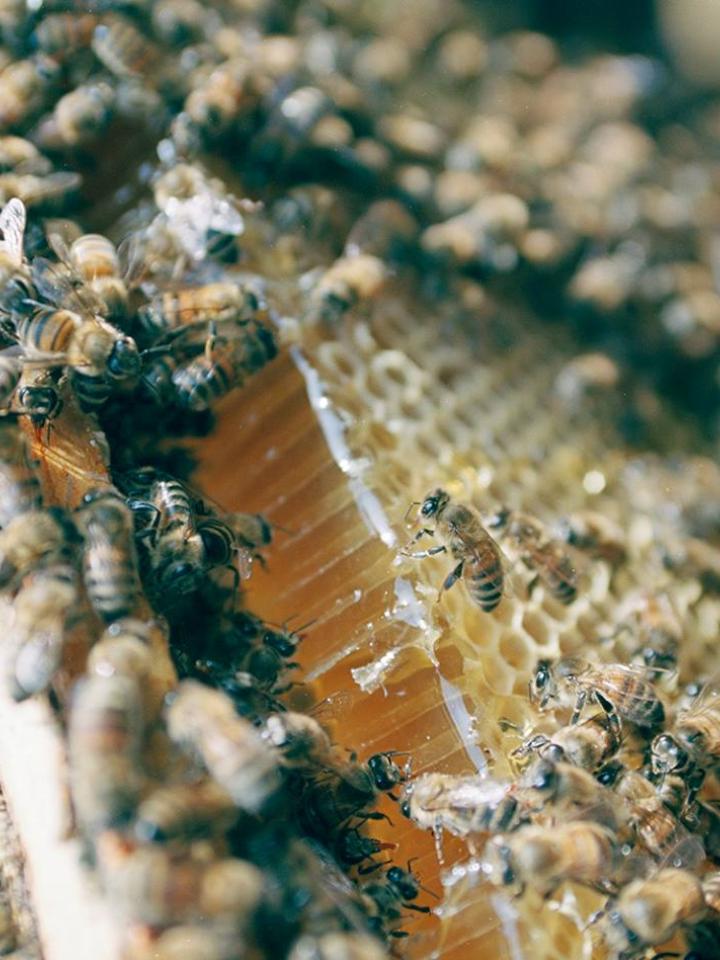Chemicals and climate change
The steady decline of bee numbers in the UK is alarming as it is consistent, however the causes are now clear. The use of chemicals such as pesticides has been shown to weaken the bees immune systems making them more susceptible to disease; cause confusion so that they are unable to remember or locate nectar sources; and reduce their longevity.
Alongside this chemical invasion, honeybees have suffered a loss of habitat as miles of hedgerows were torn up, meadows were ploughed or swallowed by urban sprawl, roads and industrial estates were built. Climate change has also impacted on plant availability e.g. milder winters mean flowers bloom earlier and may have faded before honeybees have emerged from hibernation. Despite all these challenges, it is possible to make a difference and help the honeybee to flourish in just a few small ways:
Six easy steps
1. If you're a keen gardener, refrain from using chemical deterrents against pests and diseases.
2. Allow an area of your garden to go wild, to let the nettles and cowslips thrive there as they in turn will support a whole host of wildlife.
3. Pick plant pollinator-friendly plants – these are now widely marketed both on seed packets and plant labels. These flowers and plants will give bees a helping hand.
4. Aim to grow lots of different plants that flower in succession over a wide timeframe to ensure a constant source of food.
5. Provide a shallow dish of water in the garden – bees need water too.
6. Make or buy “seed bombs” from wildflower seeds. These “seed bombs” can be thrown onto waste ground or a neglected patch of garden where the seeds will germinate, creating a whole new and healthy wildlife habitat for bees.
7. Spread the word, tell your friends, family, neighbours, colleagues and help build a buzz to help the bees!
Plan Bee is committed to halting the decline in honeybee numbers working with companies and community groups to explain the threats facing the honeybee and how we can all make simple changes to help support them.





